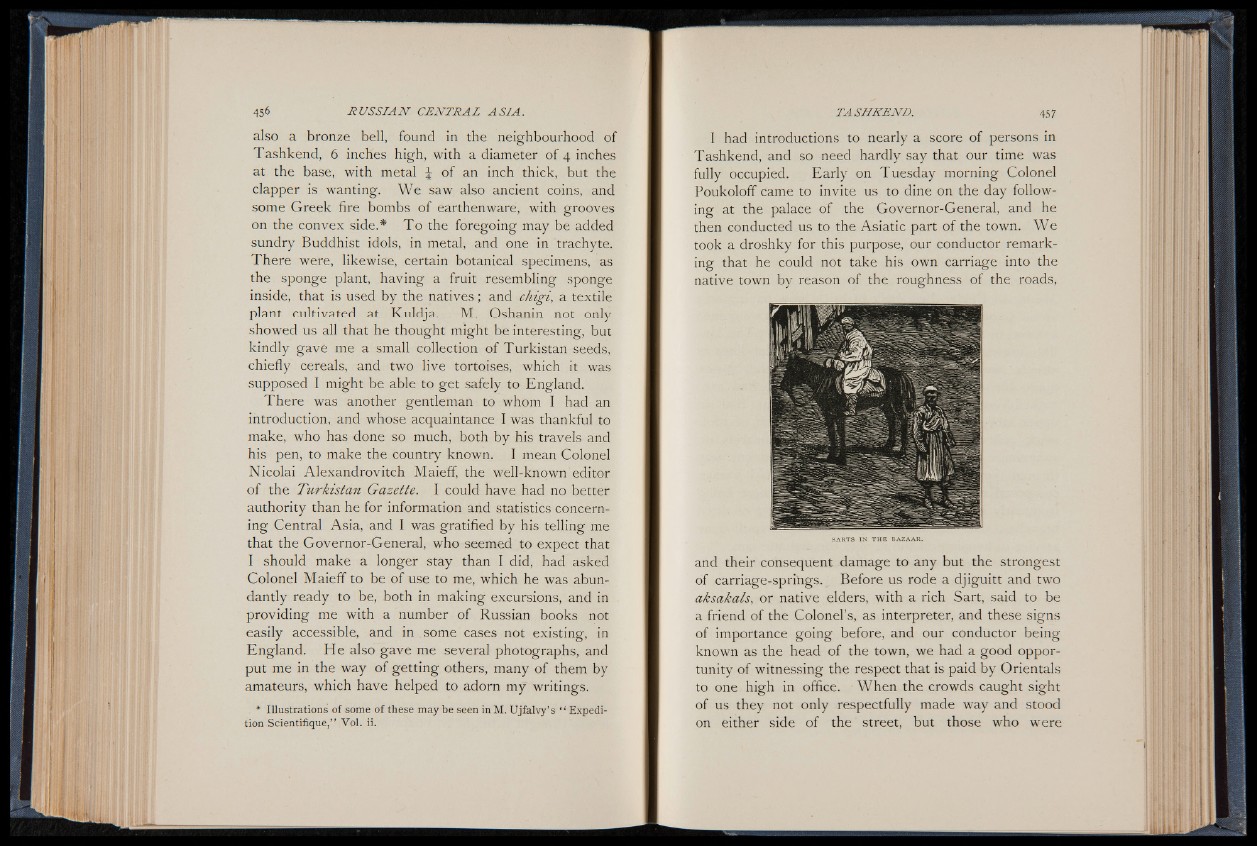
also a bronze bell, found in the neighbourhood of
Tashkend, 6 inches high, with a diameter of 4 inches
at the base, with metal J of an inch thick, but the
clapper is wanting. We saw also ancient coins, and
some Greek fire bombs of earthenware, with grooves
on the convex side.* T o the foregoing may be added
sundry Buddhist idols, in metal, and one in trachyte.
There were, likewise, certain botanical specimens, as
the sponge plant, having a fruit resembling sponge
inside, that is used by the natives; and chigi, a textile
plant cultivated at Kuldja. M. Oshanin not only
showed us all that he thought might be interesting, but
kindly gave me a small collection of Turkistan seeds,
chiefly cereals, and two live tortoises, which it was
supposed I might be able to get safely to England.
There was another gentleman to whom I had an
introduction, and whose acquaintance I was thankful to
make, who has done so much, both by his travels and
his pen, to make the country known. I mean Colonel
Nicolai Alexandrovitch Maieff, the well-known editor
of the Turkistan Gazette. I could have had no better
authority than he for information and statistics concerning
Central Asia, and I was gratified by his telling me
that the Governor-General, who seemed to expect that
I should make a longer stay than I did, had asked
Colonel Maieff to be of use to me, which he was abundantly
ready to be, both in making excursions, and in
providing me with a number of Russian books not
easily accessible, and in some cases not existing, in
England. He also gave me several photographs, and
put me in the way of getting others, many of them by
amateurs, which have helped to adorn my writings.
* Illustrations of some of these maybe seen in M. Ujfalvy’ s “ Expedition
Scientifique,” Vol. ii.
I had introductions to nearly a score of persons in
Tashkend, and so need hardly say that our time was
fully occupied. Early on Tuesday morning Colonel
Poukoloff came to invite us to dine on the day following
at the palace of the Governor-General, and he
then conducted us to the Asiatic part of the town. We
took a droshky for this purpose, our conductor remarking
that he could not take his own carriage into the
native town by reason of the roughness of the roads,
SARTS IN THE BAZAAR.
and their consequent damage to any but the strongest
of carriage-springs. Before us rode a djiguitt and two
aksakals, or native elders, with a rich Sart, said to be
a friend of the Colonel’s, as interpreter, and these signs
of importance going before, and our conductor being
known as the head of the town, we had a good opportunity
of witnessing the respect that is paid by Orientals
to one high in office. When the crowds caught sight
of us they not only respectfully made way and stood
on either side of the street, but those who were